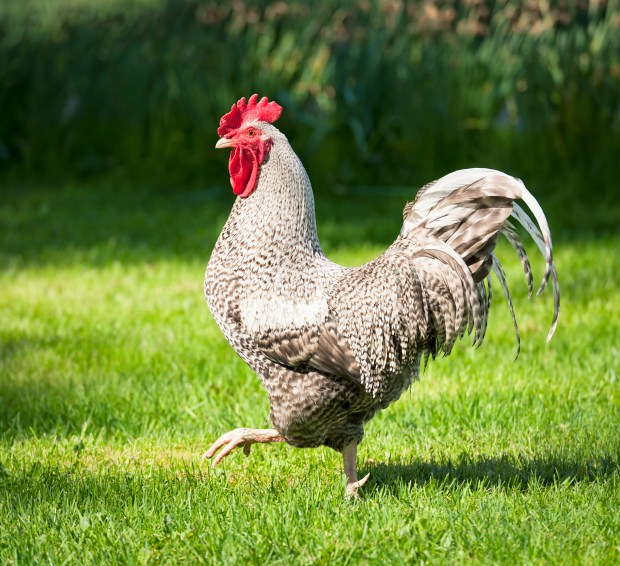Why do roosters crow?

FARM life seems peaceful until the rooster crows as the sun has rises.
The iconic image of a lone rooster crowing is synonymous with country living, but why do these birds crow?
Why do roosters crow?
There are many reasons a rooster may crow but they often come back to two main points - territory and alerting the flock.
Beyond the morning crow, which appears to be a wake-up call for the flock, roosters can crow throughout the day.
The noise tends to be no louder than a barking dog but can become annoying if it is constant.
Roosters, like many other animals, are territorial so they crow to signify their presence and warn other potential rivals that this is their flock.
If there are multiple roosters in a flock they will all crow in the pecking order and any who crow out of turn is swiftly put back in his place.
Another reason you may hear crowing is to warn of danger for both the flock and the possible danger.
READ MORE ON CHICKENS
Finally, a rooster crows as part of its mating ritual, some have theorised that the need to crow comes from a rise in testosterone creating the need to be loud.
Some roosters will crow after mating or after a hen has laid an egg, possibly to announce that the flock is fertile.
When does a rooster start to crow?
Roosters can act as your own personal alarm clock - if you want to wake up at the crack of dawn every day.
The birds let out a morning cock-a-doodle-do as they have an internal clock that anticipates daybreak.
latest on animals
The flightless birds, who have an internal circadian rhythm of 23.8 hours, often crown up to two hours before dawn.
They will also crow at sunrise, responding to the daylight, which is the time we humans tend to notice the noise as we are also beginning to wake up.
While this might not be a problem on a farm, if people are keeping roosters in more urban areas it can become an issue.
From the age of about six weeks, roosters start to crow and will continue to do so for the rest of their lives.
What is the difference between roosters, cockerels and chickens?
The word chicken refers to both genders of the bird.
However there are a number of names differentiating males from females.
Male chickens are called roosters, while female chickens are called hens - hence the name hen house for where they lay eggs.
While rooster and cockerel both refer to male chickens, the latter is only used for chickens under one year of age.
The female equivalent of a young chicken is a pullet.
Read More on The Sun
Read More on The Sun
You can normally tell the roosters from their brightly coloured comb or crest on top of their head.
As well as this their saddle and tail feathers will be longer and brighter to make them more desirable to the hens around.











